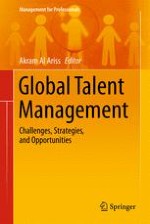2014 | OriginalPaper | Buchkapitel
Inpatriation as a Key Component of Global Talent Management
verfasst von : Jean-Luc Cerdin, Kushal Sharma
Erschienen in: Global Talent Management
Aktivieren Sie unsere intelligente Suche, um passende Fachinhalte oder Patente zu finden.
Wählen Sie Textabschnitte aus um mit Künstlicher Intelligenz passenden Patente zu finden. powered by
Markieren Sie Textabschnitte, um KI-gestützt weitere passende Inhalte zu finden. powered by
